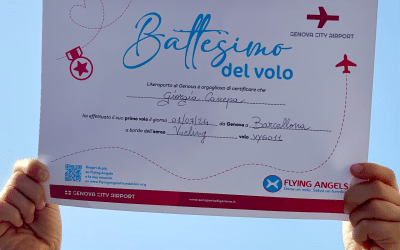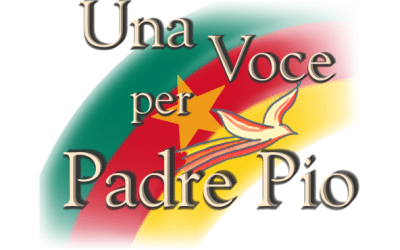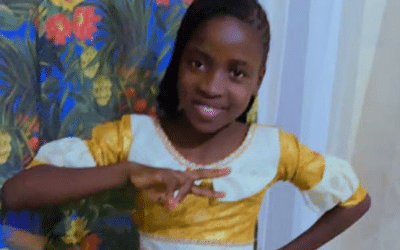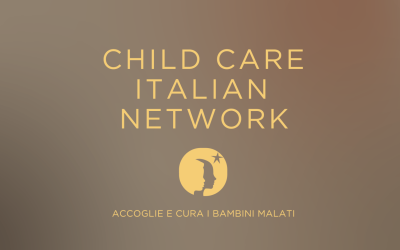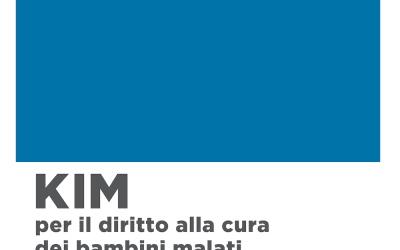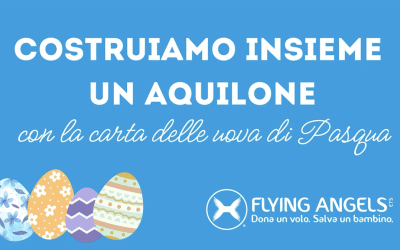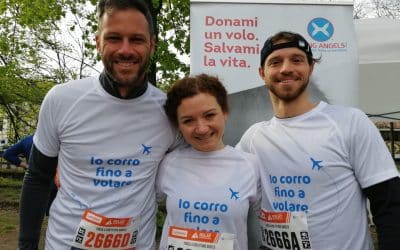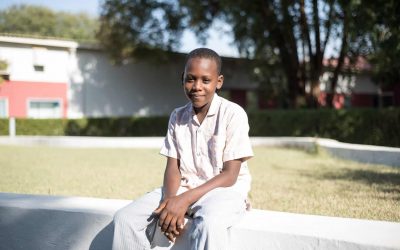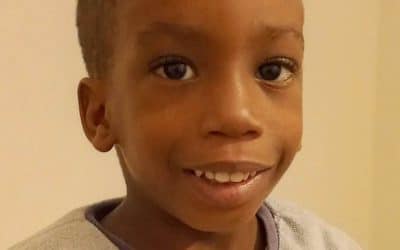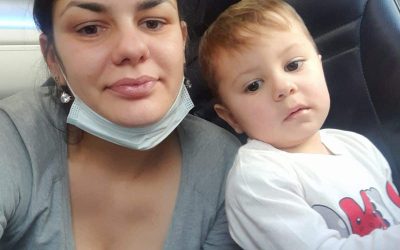Coping with emergencies even more now than ever before.
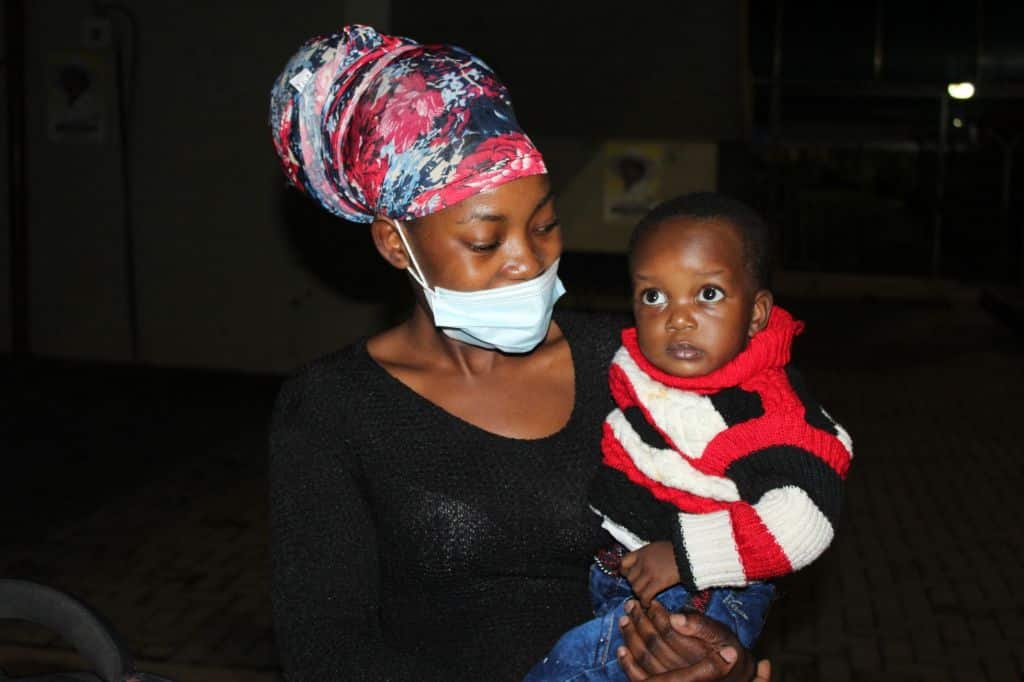
Quando il cambiamento è necessario.
Flying Angels has always dealt with emergency situations, going to intervene where there are requests for immediate and urgent help.
Starting from March 2020, with the spread of Covid 19, the whole world has changed, with a huge impact both on the general context in which the Foundation has always operated and in particular on the methods of intervention and fundraising activities.
Everything has changed very quickly.
Allowing children to fly remains our priority and therefore our goal is pursued in every possible way: monitoraggio costante delle linee aeree e delle nuove procedure, attivazione di nuove modalità di interazione con gli stakeholder e gestione dell’emergenza della raccolta fondi.
Alla fine di un anno molto complesso, Flying Angels riesce comunque a salvare 68 bambini, di cui 1 con aeroambulanza e 14 tramite intervento di 2 medici out/equipe.
Con il 2021 comincia un “nuovo inizio”, alla luce di come, indicando sotto, la Fondazione si è adattata al cambiamento.
Flights
In the initial phase (March 2020), the outbreak of the pandemic from Covid-19 led to the almost total cancellation of flights and the closure of borders, first to and from some countries, until reaching global closure.
For Flying Angels, the first step was to find contacts who could guarantee up-to-date and accurate information, identifying as interlocutors travel agencies, the consular channels of the Farnesina of the individual countries and the airlines in which contacts were intensified to obtain constant updates.
Initially, in the emergency phase, the only way to guarantee air transfers were special repatriation flights [1], which cannot be purchased through 'traditional' channels and sold only in case of availability a few hours before departure, making it difficult to plan trips.
The collaboration with local representatives in the area was fundamental to be able to proceed following this unique and precious possibility, in which some children were able to leave.
Since October 2020, even though with reduced frequency, many sections of the Foundation's competencies have become active again and with the DPCM (Decree-Law) of 5 December, girls and boys from countries such as Kosovo and Macedonia have been allowed to reach hospitals on Italian territory again.
[1]These are special flights that airlines activate at the request of governments, to allow citizens to return to their country of origin, who are abroad and who are in possession of the requisites for returning home.
Hospitals
Healthcare facilities globally are still paying the price for the Covid-19 pandemic and this led at first, and still today at peak times of the pandemic, to guaranteeing only non-transferable interventions, canceling non-urgent interventions and not being able to guarantee care for children from abroad due to an evident overload on the Italian health system.
The same has occurred in all countries, slowing the general hospitalisation rate. Some of the private hospitals have instead managed to keep the cardiac surgery departments active and this has allowed them to continue to offer the children a chance for treatment and recovery.
At the beginning of 2021, almost all hospitals reactivated their services also for foreign children, although with reduced numbers to comply with the anti Covid19 rules, such as the spacing of beds, the limitation of interventions, in order to maintain the availability of places in intensive care and the redistribution of staff on the emergency front.
Pre-hospitalisation protocols have also been activated, which in some cases require quarantine on arrival directly at the hospital, in others for fiduciary isolation at external facilities. The further commitment of the Foundation is therefore to guarantee the air transfer after all the required procedures have been completed and after receiving a copy of the Covid-19 swab test results.
Hospitals
Healthcare facilities globally are still paying the price for the Covid-19 pandemic and this led at first, and still today at peak times of the pandemic, to guaranteeing only non-transferable interventions, canceling non-urgent interventions and not being able to guarantee care for children from abroad due to an evident overload on the Italian health system.
The same has occurred in all countries, slowing the general hospitalisation rate. Some of the private hospitals have instead managed to keep the cardiac surgery departments active and this has allowed them to continue to offer the children a chance for treatment and recovery.
At the beginning of 2021, almost all hospitals reactivated their services also for foreign children, although with reduced numbers to comply with the anti Covid19 rules, such as the spacing of beds, the limitation of interventions, in order to maintain the availability of places in intensive care and the redistribution of staff on the emergency front.
Pre-hospitalisation protocols have also been activated, which in some cases require quarantine on arrival directly at the hospital, in others for fiduciary isolation at external facilities. The further commitment of the Foundation is therefore to guarantee the air transfer after all the required procedures have been completed and after receiving a copy of the Covid-19 swab test results.
Non-profit partner organisations
Almost all of the partner organisations that report cases of children have had to stop most of the international projects, returning staff who were abroad and postponing the departures of new projects.
At the beginning of 2021, the Italian partner organisations have not restarted at full capacity yet, whilethe foreign front continues to be operational, such as the Uganda-India route for children with heart diseases and the Africa-to-Africa route to the Salam Center in Khartoum.
Short-term medical missions have halted due to the procedures described below.
Covid procedures
Children and care givers arriving in Europe must have a swab test before departure, 14 days of quarantine, followed by an additional swab test before they can be hospitalised.
For the Foundation, this entails the need to make children fly as soon as possible, also to respect visa durations ranging from 30 to 90 days, a period in which the child must remain in isolation, be hospitalised and undergo the necessary treatments / interventions with any repercussions or possible changes on the return flight plans.
For team doctors, the procedures include pre-departure swab tests, 14 days of mandatory quarantine upon arrival in the non-Schengen country and 14 days of quarantine upon their return to their country of origin (where applicable), therefore it is not possible to organise any short-term medical trips at the moment.
Covid procedures
Children and care givers arriving in Europe must have a swab test before departure, 14 days of quarantine, followed by an additional swab test before they can be hospitalised.
For the Foundation, this entails the need to make children fly as soon as possible, also to respect visa durations ranging from 30 to 90 days, a period in which the child must remain in isolation, be hospitalised and undergo the necessary treatments / interventions with any repercussions or possible changes on the return flight plans.
For team doctors, the procedures include pre-departure swab tests, 14 days of mandatory quarantine upon arrival in the non-Schengen country and 14 days of quarantine upon their return to their country of origin (where applicable), therefore it is not possible to organise any short-term medical trips at the moment.
Visa Issuance
The entire consular network has found itself facing a critical situation on a world scale never before seen and this has led to a slowdown in the issuing of visas.
At first we witnessed total closures of the countries in and out with exceptions for some specific cases such as the return to the country of residence or the need to travel for work, family reunification and emergencies. In many cases, medical claims were not considered eligible for travel.
With regard to Italy, lists of countries with different levels of access have been set up for cases of countries in which entry has been absolutely forbidden.
With the creation of the entry ban lists, it was necessary to open a dialogue with the Usmaf -Sasn [2] office, whose officials were immediately available to collaborate with Flying Angels in order to guarantee the arrival of the children, in full compliance with current regulations.
Only with the DPCM (Decree-Law) of 5 December 2020 the lists were mitigated making it possible to enter Italy even for health reasons.
Thanks to the strengthening of the channel with the Farnesina and the circular MAE01414292012-05-29 [3], the Foundation was able to assist with the issuance of visas to all the children who asked for help.
[2] In 2012 Flying Angels was accredited, by Farnesina, at all Italian Embassies around the world for the humanitarian value of our initiative. A circular by the Farnesina is recognized by all the Italian Embassies in the world to obtain simplified visas for medical travel.
[3] Technical coordination of the Maritime, Air and Border Health Offices and of the Territorial Health Assistance Services for USMAF-SASN crew.


